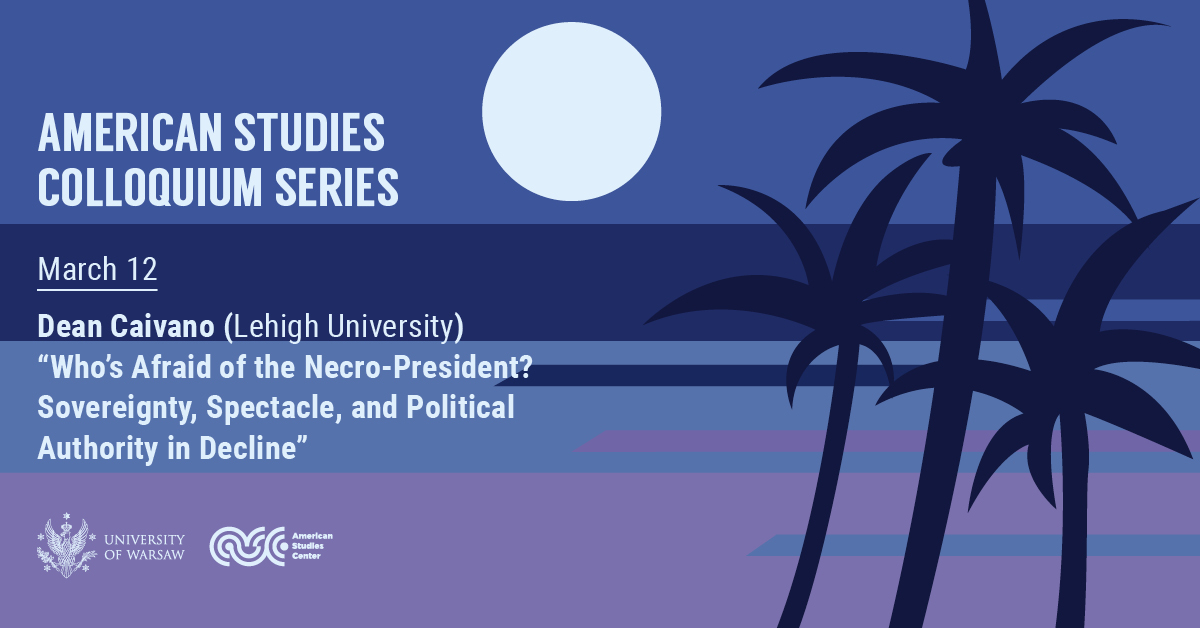We are pleased to invite you to
The Senses of Science Fiction: Visions, Sounds, Spaces
An international conference organized by the Speculative Texts and Media Research Group, American Studies Center, University of Warsaw
December 5-7, 2019
Where?
American Studies Center, room 317,
al. Niepodległości 22, Warsaw.
What?
For most of its history, or at least since the late 19th century, the core conversations of science fiction (SF) have not been kind to the senses. For different reasons in different decades, the creative communities and the critical circles have focused on the genre’s status as the supreme expression of western technomodernity, its imbrications with the discourses of science and technology, and its subversive political potential. While always already present in SF’s structural, material, and creative dimensions, the formal, the aesthetic, and the sensible have been largely neglected at the expense of the functional, the political, and the cognitive. The questions of language and literary style have been discussed only with regard to selected writers, such as J.G. Ballard or William Gibson, while spectacle in film and television has been treated with a degree of suspicion and distrust—as something that dilutes the core values of rigorous speculation. Other less narrative media—forms in which the aesthetic plays the central role—have received very little or virtually no critical attention. And yet, for all its scientific bent and political urgency, science fiction has always strived to appeal to the senses and to instill in its audiences a sense of the beautiful, the harmonious, and the sublime.
The notion of aisthesis, that is sense perception, has recently regained prominence in humanities, playing a significant part in the philosophy of speculative realism, the turn towards the posthuman, and the shift away from anthropocentrism brought about by the increasingly widely embraced paradigm of the Anthropocene. In recognition of this newfound appreciation of the aesthetic, this conference seeks to recuperate the invisible and forgotten history of the sensible in the cultures of science fiction. It also seeks to find new ways of talking about these dimensions of SF texts across all media that in one way or another appeal to and engage all things sensible: sight, hearing, touch, movement, composition, but also smell, taste, auras, and speculative senses. Such attentiveness to the sensory in science fiction does not entail abandoning narrative, political, or scientific perspectives. Indeed, historically, many cultural forms have successfully intertwined formal elegance with political agency and emotional appeal with philosophical reflection. We believe science fiction is—and has always been—among these forms.
While the conference specifically namechecks science fiction, we follow in the footsteps of Sherryl Vint, Mark Bould, and John Rieder, treating the genre as a practice and a discourse, rather than an object of finite parameters. In fact, from a more traditional perspective, many SF texts that appeal to the senses as much as to the mind have been generically “impure,” borderline, slipstream, or otherwise hybrid.
More information and full program: http://senses-sf.pl/




